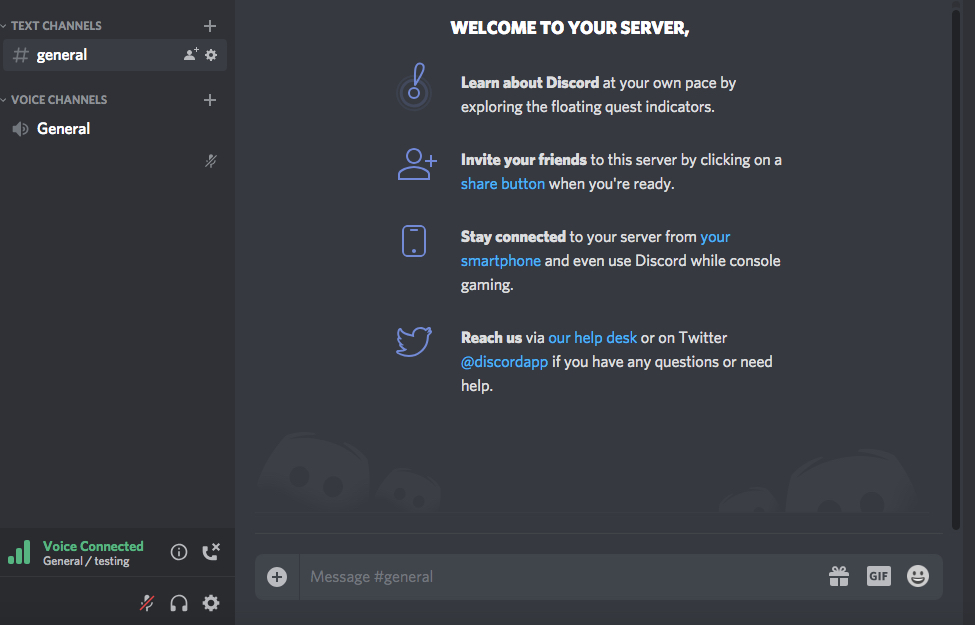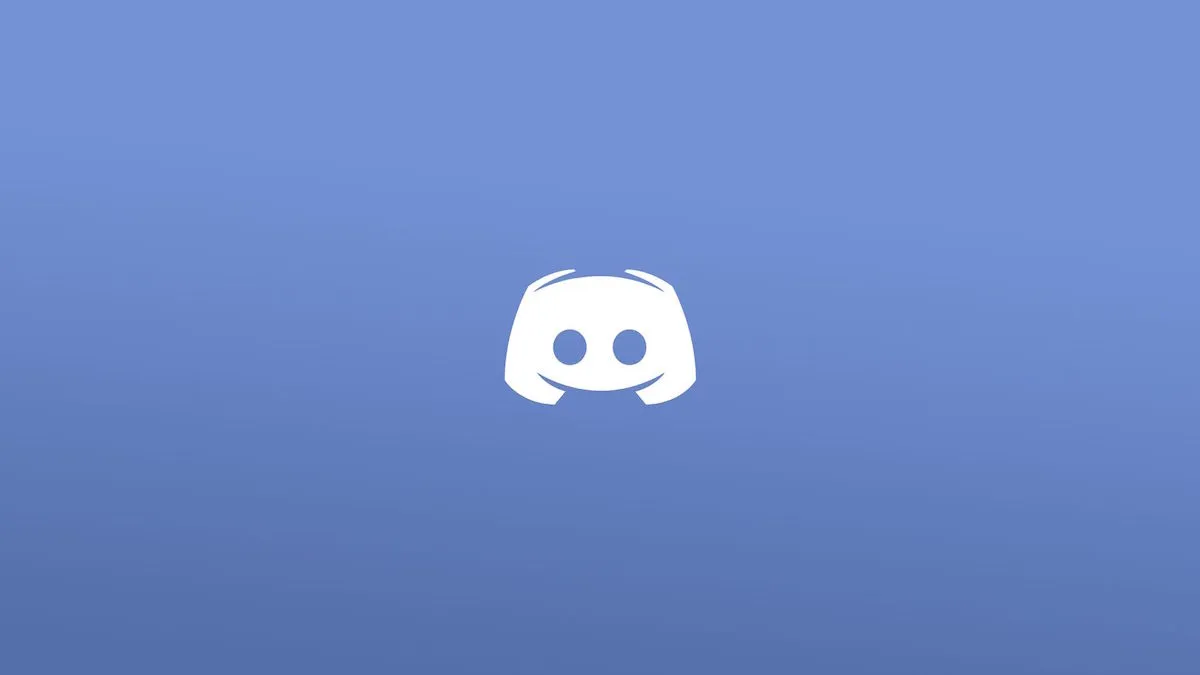Discord is a text and voice chat program initially designed to connect gamers. While gamers are still on the platform in abundance, Discord has also become a hub of fandoms and other communities. For many, the service is now a central part of everyday life, providing a sort of real-time collective of people with similar interests. And users continue to flock there in increasing numbers.
If you’re new to Discord as a concept, a brief explanation. Those of us who used to hang out on IRC, or in AOL chatrooms (or, in a real throwback that reveals my age, on Telnet servers) know that chats clustered around a topic are hardly a new idea. But I like to explain Discord to the uninitiated as the chatroom we could only have dreamed of in the ’90s and early aughts. It’s sleekly designed, free and easy to set up, and it goes with us everywhere via mobile app.
Many people already use Slack for work, and Discord at first has a similar design feel. It does, however, have the more relaxed distinction of not feeling work-related or connected to your “IRL” identity. Each server has a general hub and a multitude of channels can be added to organize topics of conversation; pictures and gifs can be uploaded easily or links dropped in for easy sharing, and you can send private messages to individual users.
The program has elements that Slack does not have, including the ability to link in your gaming activity and even the music you’re listening to be broadcast beneath your username. There’s also the option to turn on an opt-in NSFW channel. If you’re a member of multiple servers, you can switch between them with ease, and creating your own server is as simple as clicking one prominent button. While Discord is free to use, you can pay $4.99 or $9.99/month for “boosted” special features.

The last few years have been tumultuous for fandom on public platforms. At the same time that fandom has come more into the mainstream, spaces for talking about it and sharing fanworks have proven less reliable.
Tumblr’s NSFW content ban in December 2018 drove many users to abandon the social blogging site, especially artists and creators whose content was now subject to flagging and removal. Some left in solidarity and disgust with the new Tumblr policy, with most moving to Twitter—which still permits NSFW content—while others reverted to tried and true areas like Dreamwidth or leaned into upstart newcomers like pillowfort.io. While there’s been somewhat of a return to Tumblr after the initial mass exodus, the bloom is off of that rose.
Twitter, though more permissive of content, can be a hive of trolls, and is limited by its character count. Facebook is … Facebook. Facebook is, these days, more likely to be a place where you try not to see your uncle’s unhinged conspiracy theory memes, and its insistence on using real names means it’s not an ideal spot if you want to draw a line between your activities online and the profile page your grandma scrolls through to comment on all of your pictures.
Increasingly, many groups began gathering in their own Discord servers, which provide a concentrated well of activity without the kind of NSFW content restrictions, trolling, or discourse you’ll sometimes find on Tumblr or Twitter. On Tumblr, which does not support private group messaging, anything you write or draw or reblog is open to be seen by anyone unless you’ve blocked a specific user. The same is true on Twitter unless you’ve locked your account to all except approved followers.
This means that your content is subject to public criticism, which can be exhausting, discouraging, and potentially open you up to outright harassment. Some people will search through tagged topics or keywords to take issue with your posts there, or write call-outs attacking your choices, or send hurtful private messages. It’s enough to turn spaces meant to be fun and creative into toxic battlegrounds.
(Since I began writing this article, Tumblr launched a group chat feature, which—bizarrely—keeps all the chat content public. There is still no way to privately message multiple users.)
This is not to say that Discord offers a drama-free destination. Like any community comprised of several humans, there are always going to be differing opinions and the potential for conflict. The difference Discord provides is that its servers can be a walled garden of carefully selected people, self-moderated by a server’s admins. While there are tons of open Discord servers founded upon any number of topics (you can search for them within Discord search or on listing sites like disboard), the ones that I participate in for specific fandoms are members-only by invite. I’ve been in some for months with nary a discordant (sorry) moment.
This does, of course, create the potential for a rise in cliquishness, the exclusivity factor of some Discords leaving people feeling left out in the cold. Sometimes you’re very aware that there’s an exclusive server catering to certain artists or writers, for example, and no seeming way in. Yet fandom-forged friendships have long found ways to come together in their own spaces online, from personal mailing lists to shared group blogs to messaging programs and email threads. The instinct to circle up with like-minded people is not new; it might be the oldest instinct we have.
Discord expands on these more limited options for online interaction, giving us a user-friendly interface for both desktop and app usage, and the real-time, “live” element is part of its appeal. When “several people are typing” about a topic, that creates the sense of a connected collective, as well as takes the pressure off of any one person to be producing content on their own.
It’s difficult to explain to a layperson the amount of vitriolic “discourse” that runs a through-line through fandom as a whole, and each fandom or “ship” pairing has its own unique debates and issues. This is also not new. An increasingly growing divide as of late, however, is concern around so-called problematic content, as evinced by some of the attacks on Archive of Our Own, and a general rise in a sort of online performative purity culture. Pearl-clutching over fanmade fictional representation that is construed by some as harmful or distasteful leads to a combative atmosphere where no one can truly be an arbitrator of what is acceptable, but many are keen to try.
a nice summary of the similarities between anti’s/purity culture and conservative religions pic.twitter.com/ibHgtDKYZe
— isak’s single tear (@orionsjayus) November 20, 2019
“I saw Goody Proctor with the Devil and she had a bad Steven Universe headcanon” 🤣🤣🤣
— Bottie (@PeonyMilk) November 20, 2019
Individual users can be harassed and maligned for their decision to prefer certain fictional characters in a relationship, or for the themes of the content that they produce. Brigading “antis,” or anti-shippers, have been around as long as fandom has, but they’re distinctly more vocal and visible on social media, where one often has little choice in sidestepping them. Fanlore.org explains this form of anti as “fans who attack a ship and its shippers with arguments that it is morally wrong,” often with the kicker that it promotes IRL abusive behavior. If you’ve been subject to a call-out or the suggestion that you “kill yourself” over your fandom choices—not a rare occurrence on social media—it’s little wonder that more and more people have decamped to spaces where they know they’re welcome.
“Ship-specific servers developed in response to growing shipping wars and malicious cross-tagging on Tumblr and the need to have hate-free spaces to discuss shipping content,” Fanlore’s Discord entry reads.
People create this flavor of Discord as a means of side-stepping the “shipping wars” that have been around since time immemorial but have arguably changed in tone “from whether or not a ship has canon support to whether or not a ship is morally good.” (A ship war means fans of different romantic pairings in the same fandom fighting amongst themselves.) In this way, Discord is a huge positive and refreshing alternative to open-ended social media. Rather than waste energy arguing with those who prefer a pairing different than your own, or who hate your favorite character, or your favorite movie in a series, you can simply surround yourself with those who share a similar preference and continue the discussion where people are not liable to slug it out.

Pictorial representation of a shipping war.
The rise of Discord is not limited to fandom circles. I know of writing groups, theater production teams, and political action campaigns that have created their own Discords for the same ease of use, and as a way to message a variety of people across mobile platforms. Creators with Patreons sometimes offer their own Discord server as a reward for support, where you can hang out with the person you’re Patreon-ing.
This is only a tiny sliver of the special interests out there that are seizing onto Discord. On reddit, many subreddits have public-facing Discords that anyone can join, centered around a topic, hobby, or ideology. Some of these are vast and unwieldy, with hundreds or even thousands of members, but they provide an incredible opportunity to pool knowledge and connect over shared activities. CNET reported in July 2019 that Discord now has more than 250 million registered users. Calling the service “Slack for gamers,” they add that usage “has been steadily expanding outside that world as it’s increasingly used by YouTube personalities, podcasters, hackers and more.”
Discord itself is not without its share of controversy. Before I came to hear about it as an appealing fandom destination, Discord took heat for being the tool that white nationalists used to plan rallies and encourage violence in Charlottesville in 2017, as well as serving as a gathering-place and potential breeding-ground for these sort of groups. After Charlottesville, Discord banned several servers and adopted a stance against hateful speech on the platform, as Polygon reported:
“We unequivocally condemn white supremacy, neonazism, or any other group, term, ideology that is based on these beliefs,” the company said in a statement. “They are not welcome on Discord. While we don’t read people’s private servers, our Terms of Service explicitly forbid harassment, threatening messages, or calls to violence.”
There is, however, the continued potential for various abuses considering the service’s largely hands-off moderation of private servers and messages, and as CNET notes, “insufficient bureaucracy to track and punish [bad actors].” Writing for OneZero, Luke Wilkie recently looked at the rise in popularity of “illicit” teenage dating servers, and the problem of how to keep predatory adults out of spaces intended for teens.
Discord’s unobtrusive moderation policy is a blessing if you just want to be able to share some sexy fan art with your friends, but that comes with the double-edged sword that seriously unsavory content—and people—could be swirling about in servers also. In years past Discord has had issues with spammers and illegal pornography (to be fair, these are problems endemic to the majority of social media platforms). The Community Guidelines warn against a spectrum of harassment and prohibited content, and they lay out what behaviors will result in outright bans. But like any moderation system, there are likely many dubious actions that are ruled unpunishable and allowed to continue.
The darker sides of Discord are worth mentioning so that users can go in with their eyes open, but my experience thus far has been overwhelmingly positive. The ease of use makes Discord friendly to even Internet seniors and fandom olds like me, and I’ve made wonderful friends in spaces that are celebratory of content that I love. While it sometimes feels unfortunate that we seem most productive and happy inside a walled garden, it’s an incredibly welcome relief from the public spotlight of social media, where a misguided Tweet or an unpopular opinion can take on a vicious life of its own.
I find it telling that as social media’s star has fallen, and there’s considerably more distrust about content and advertising found on Facebook and Twitter, people have gone back to forging their own communities, sealing them off from outside conflict and intrusion. Whether this more cordoned-off approach to being online will continue and become even more of the norm remains to be seen. But rather than a newfangled invention, it feels like a return to older times with better tech and the battle scars earned from years out in the open.
(images: Discord, Disney)
Want more stories like this? Become a subscriber and support the site!
—The Mary Sue has a strict comment policy that forbids, but is not limited to, personal insults toward anyone, hate speech, and trolling.—










Published: Nov 22, 2019 02:28 pm